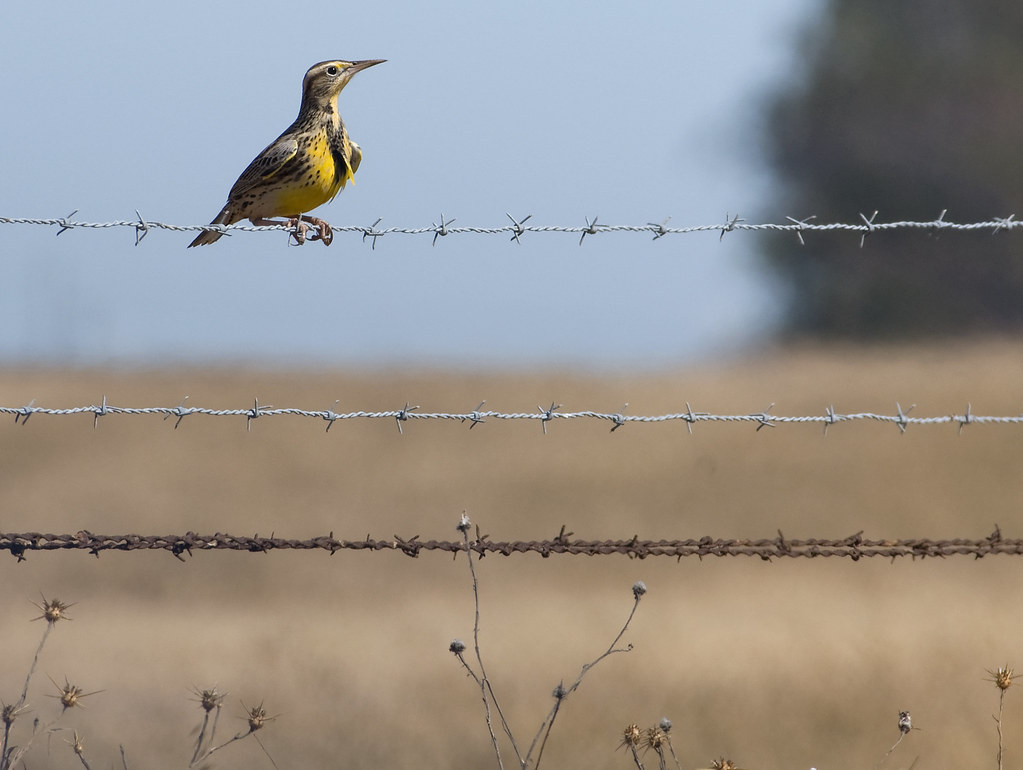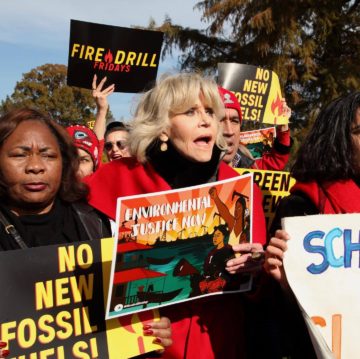What to Do When the Canaries Have Already Died

One morning in early September, I stepped outside into 112-degree heat, the hottest I have ever known it to be in southern California. The sun was brownish orange from the apocalyptic fires raging up north, half a state away. The air was thick with dust particles.
We had been told it was unsafe to be outside.
The newspaper said that tens of thousands of birds were falling dead out of the sky over New Mexico, Arizona and Nevada. Because global warming was destroying their summer habitats in Canada and Alaska, they were migrating too early to have sufficiently fattened up. Normally their route took them over the coastal lands where food was plentiful, but the fires had forced them inland over deserts. Ornithologists determined that they had died from starvation.
As I quickly walked my dog, I saw finches and sparrows sitting on the ground with their beaks open and tongues visible. They were panting! I had never seen a bird pant.
Right then, a sensation in my body I had not felt since the 2016 election returned. Existential dread. Was this it? Had the climate emergency already reached the tipping point?
I grew up in the countryside and have spent a good part of my life outdoors, where the songs of meadow larks, whippoorwills, robins, and goldfinches were a precious part of my life. But in 2019, scientists discovered in 2019 that there are almost 3 billion fewer birds in North America than there were in 1970.
The mass die-off of birds breaks my heart. Still, I put out bird feeders and a birdbath, knowing it doesn’t matter in the grander scheme, but it makes me feel better.
Regulation is ‘not color blind’
Birds’ lungs are fragile. That’s why miners sent canaries into coal mines. The birds would die quickly if there were toxic gases, warning it wasn’t safe for men.
Low income, indigenous and communities of color, however, don’t need birds to tell them things aren’t right. Fossil fuel infrastructure has been deliberately situated in their midst for many decades. These communities are cynically called “sacrifice zones.”
Nalleli Cobo, a brilliant 16-year-old climate activist, is currently in remission from cancer of her reproductive organs. She lives in Wilmington, Calif., an hour south of Los Angeles, where oil derricks and refineries cast shadows over playgrounds, schools and homes.
Don Martin, also from Wilmington, carries the ashes of his wife in a vial around his neck. She died of cancer. Many people in Wilmington have cancer, lung and heart disease as a result of the fumes from the nearby refineries.
Because of the fossil fuel air pollution that envelopes these communities (and lack of fresh food and health care), people of color, Native peoples and the poor are predictably more vulnerable to the COVID-19 pandemic. “Environmental regulations in this country, they’re not color blind,” said Sacoby Wilson, a professor at the Maryland Institute for Applied Environmental Health at the University of Maryland.

A reality check
Global warming makes future pandemics inevitable. Such outbreaks are immediate crises, often causing people to change their habits overnight. The climate crisis is less obvious, allowing the more privileged to believe it is something that will one day — maybe — impact them.
Unlike young Greta Thunberg and so many of the student climate strikers, not enough adults are paying attention to the scientists, who recently issued new warnings that planetary warming is happening faster than they had previously realized, and current levels of climate action are “considerably inadequate.”
According to the Climate Reality Check 2020 from the National Center for Climate Restoration in Melbourne, Australia, the latest generation of climate models suggest we may breach the Paris Agreement’s warming boundary of 1.5 degrees Celsius (34.7 degrees Fahrenheit) in five to seven years.
“Rising emissions, declining aerosols (air pollution), and natural climate cycles will contribute to faster warming,” the report authors wrote, “as will greater stratification of the ocean with a hotter layer of water on top contributing to faster warming.” Sulfate aerosols are a by-product of burning fossil fuels and have a cooling impact. They are short-lived in the atmosphere but have been “masking” some of the warming so far, experts say.
Climate scientists are warning that fossil fuel emissions must be drastically cut — and fast — if we are to avoid the tipping point when vast ecosystems will start to unravel beyond our control.
Professor Hans Joachim Schellnhuber, the director emeritus of the Potsdam Institute For Climate Impact Research in Germany, said that if we continue down the present path, “there is a very big risk that we will just end our civilization. The human species will survive somehow but we will destroy almost everything we have built up over the last two thousand years.”
Using until it is all gone
In our hubris, we avoid thinking about the fact that our ability to live on this planet is dependent on oxygen, a certain range of air temperatures, and safe, potable water.
Take fresh water: With industrial and agricultural pollution, as well as fracking, we’re using it up, and the consequences of this are already visible and accelerating. The U.N. predicts that by 2050, a lack of access to clean water could negatively affect 5 billion people, or half the planet. Already, billions of people globally lack access to safe, clean water.
Half of our oxygen comes from the oceans, specifically from phytoplankton, the small creatures that comprise the bottom of the food chain, feeding everything from tiny fish to giant whales. Oxygen-producing phytoplankton can be degraded by the acidification of ocean water caused by burning fossil fuel. Some have already disappeared.
The rest of our oxygen comes from forests, and we have already lost about half of the planet’s forests, and 20 percent are degraded and much of the rest is fragmented, according to Greenpeace. Only 15 percent of the original forests are intact. This does not bode well for us humans.
As for heating up, this summer, Death Valley reached 130 degrees Fahrenheit, the hottest temperature ever recorded on earth. Soon there will be whole tracts of earth in which humans cannot survive.
All over the world as water dries up, farmland turns to desert, coastal areas flood, and permafrost melts, ecosystems can no longer support the communities they once did. Climate refugees are forced to search for someplace safe to live. The World Health Organization predicts that as many as 140 million such refugees will be on the move by 2050.
The U.N. Refugee Agency recorded its highest number of displaced people ever in 2019. Around half of them were under age 18 and about half were women. Nearly 80 million people in total had been forced from their homes because of war, violence, political and religious persecution — all of which can be spurred by climate change. And climate change itself was a driving factor.
Along with apocalyptic fires, floods, and rising sea levels, the increasing numbers of climate refugees have been forcing more and more people to acknowledge that climate crises are not a future danger but an immediate reality.
Be alarmed, not paralyzed
A young, undocumented woman named Claudia Quinonez, spoke recently at one of the Fire Drill Fridays I lead each week in Washington. We gather on Capitol Hill to demand that our political leaders take action to address the climate emergency.
Claudia described what it was like being 6 and 7-years-old in Honduras. Unable to grow food as her family always had because of a long drought, they couldn’t afford to buy food. Besides, she said, there was no food. People were killing each other over basic necessities like food and water, she told us.
People like Claudia didn’t cause the climate crisis. The U.S. and other industrialized countries did. But she and people like her bear the consequences.
I know there is mixed thinking on leading with the terrifying science, since fear tends to paralyze people, but I’m doing that anyway because it is so alarming, and I figure the readers of the WMC website aren’t the sort that get paralyzed.
I beg you not to get paralyzed.
There is still time for us to act to minimize the impact of the climate crisis. According to the U.S. Intergovernmental Panel on Climate Change, hundreds of millions of lives hang in the balance with every half degree of warming we either enable or avoid.
The election of Joe Biden as president of the U.S. is very hopeful. He will be the first climate president we have ever had. He pledges to rejoin the Paris Climate Accord, invest trillions of dollars in a renewable, green-energy future that will create tens of thousands of jobs and he pledges to prioritize these investments in communities of color and indigenous lands that have been most damaged by pollution and loss of jobs.
Biden has also promised to stop subsidies to the fossil fuel industry, to stop new permits for fossil fuel development on public lands and waters, and to send billions of dollars to low-income countries to help them develop without fossil fuels.
Our job now is to ensure Biden doesn’t appoint anyone to his administration with ties to the fossil fuel industry, and that he acts immediately to do what he’s promised with executive orders starting on his first day in office. He must also deploy investments and standards in the electricity, transportation, buildings, manufacturing, lands, and agricultural sectors to spur the largest expansion in history of clean, renewable energy, emissions reduction, climate resilience, and sustainable resource use.
If you want to be part of the movement to make all this a reality, please join Fire Drill Fridays and Greenpeace by going to firedrillfridays.com.
More articles by Category: Environment, Jane Fonda, Race/Ethnicity
More articles by Tag: Climate change, Water, Poverty



























